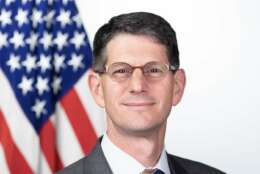Cybersecurity
-
Brian Harrell, the assistant director for infrastructure security, is leaving the agency after 21 months at CISA. Steve Harris, the deputy assistant director, will take over on an interim basis.
August 20, 2020 -
While 5G could have major implications for the economy, intelligence and cybersecurity agency officials warn that moving more core functions to the edge of networks could create a larger attack surface for adversaries.
August 20, 2020 -
Grant Schneider, the federal chief information security officer, is leaving federal service after almost 28 years, including the last two in his current role.
August 18, 2020 -
Guy Cavallo, the SBA deputy chief information officer, will become the principal deputy CIO at OPM starting on Sept. 14.
August 18, 2020 -
Five of 10 agencies responded to Sen. Maggie Hassan’s (D-N.H.) request for details and plans for how they will modernize outdated systems and what Congress can do to help.
August 18, 2020 -
While the security benefits of zero-trust architectures are well-known, less recognized is the extra value that zero-trust architectures can create.
August 17, 2020 -
Some agencies' new routines might be here to stay, according to IT security officials who say the feasibility of long-term telework has opened the door to a reimagining of the civil service.
August 14, 2020 -
In the end, CMMC is really just a change of procedure that will result in efficiencies by preventing things upfront that will create better efficiencies downstream.
August 14, 2020 -
Defense and national security tech leaders are trying to balance implications of mass telework with pre-existing cyber priorities, and fend off an unending onslaught of bad actors trying to exploit the – in some cases – woefully unprepared remote federal workforce.
August 14, 2020 -
To achieve this platform approach, agencies need to consider how to take full advantage of automation and orchestration so tools can talk to each other and provide real-time data to security experts.
August 14, 2020 -
Grant Schneider, the federal chief information security officer, said the Federal Acquisition Security Council continues to work on its interim final rule detailing how it will share supply chain risk information with government and industry.
August 14, 2020 -
The interim rule implementing Section 889 of the 2019 NDAA takes effect Aug. 13 requiring agencies to add a provision to all new task orders and solicitation prohibiting vendors from using certain Chinese telecommunications products.
August 13, 2020 -
We won’t achieve holistic cybersecurity anytime soon without empowered national leadership, an understanding of the problems we need to solve, a comprehensive roadmap for prioritizing efforts that illustrates the desired end state, and a national-level collective defense that bridges the private and public sectors and forges international cooperation.
August 12, 2020 -
Whether it’s protecting a government-supported effort to produce coronavirus vaccines and treatments, or preventing interference in this November’s election, the Cybersecurity and Infrastructure Security Agency is working with industry partners to stay on top of…
August 11, 2020 -
This week on Federal Tech Talk, John Meyer, vice president, Defense Products at Peraton, joins host John Gilroy for a wide ranging discussion of the surface web, the deep web, and the dark web, and they challenges they pose for federal IT officials.
August 11, 2020















